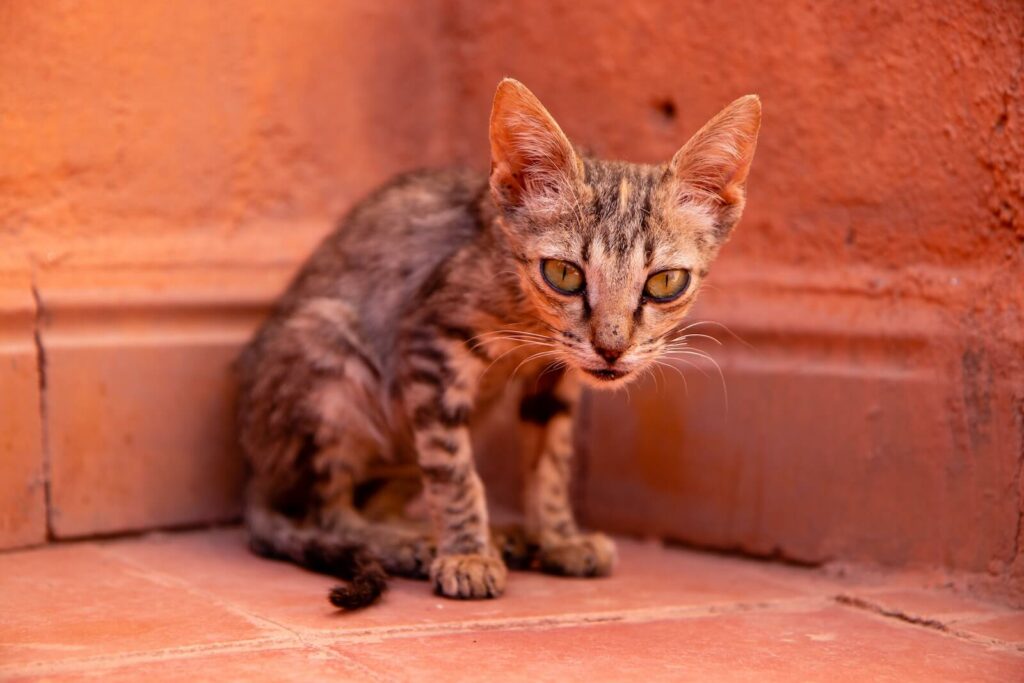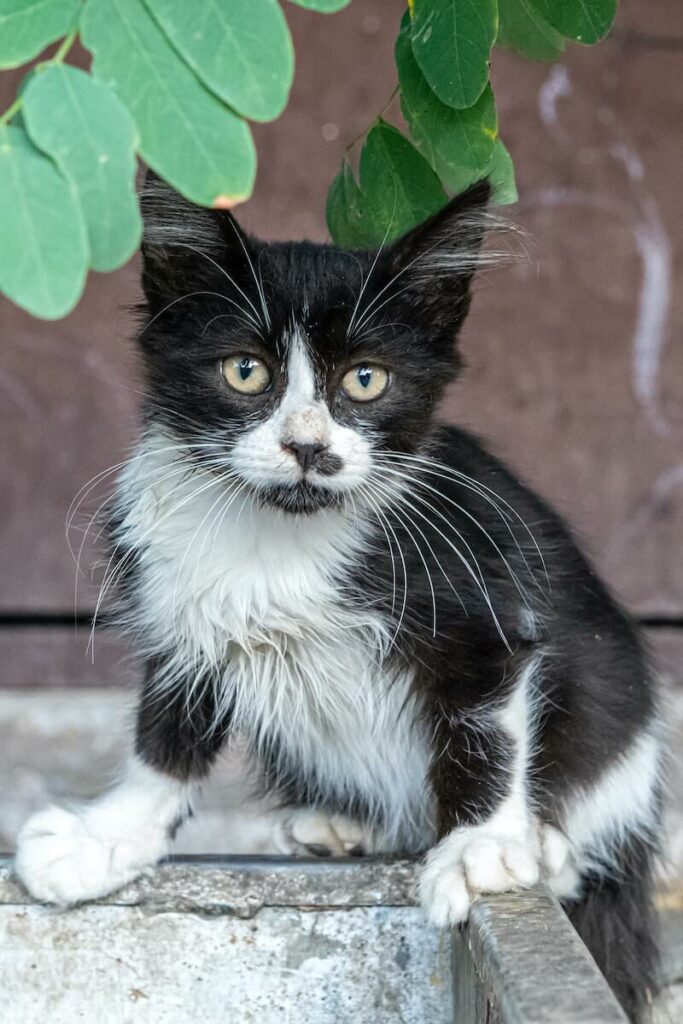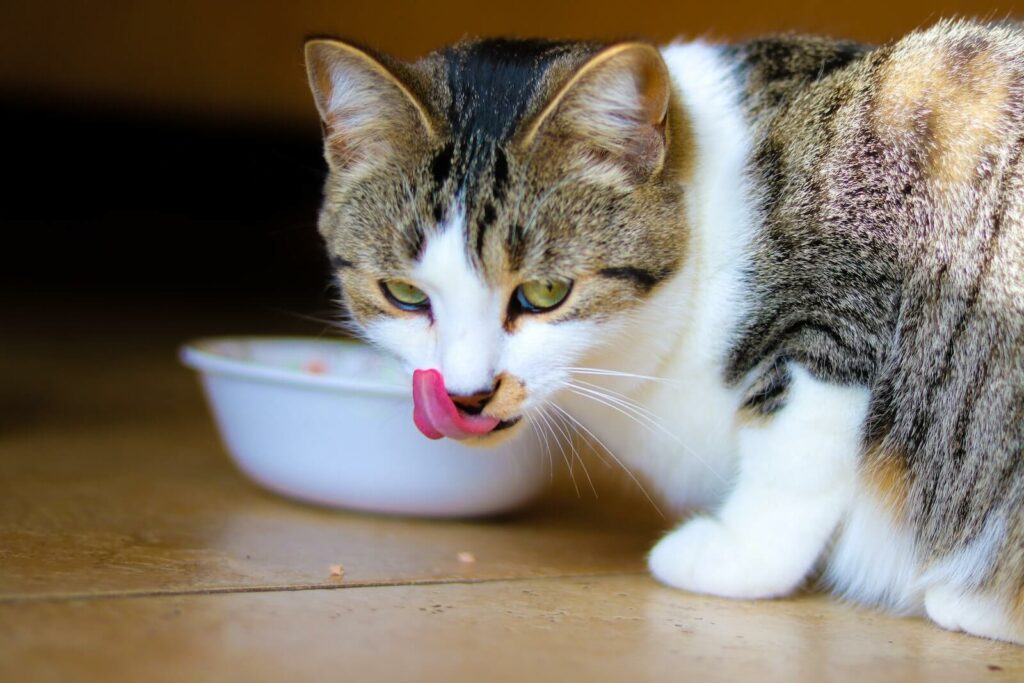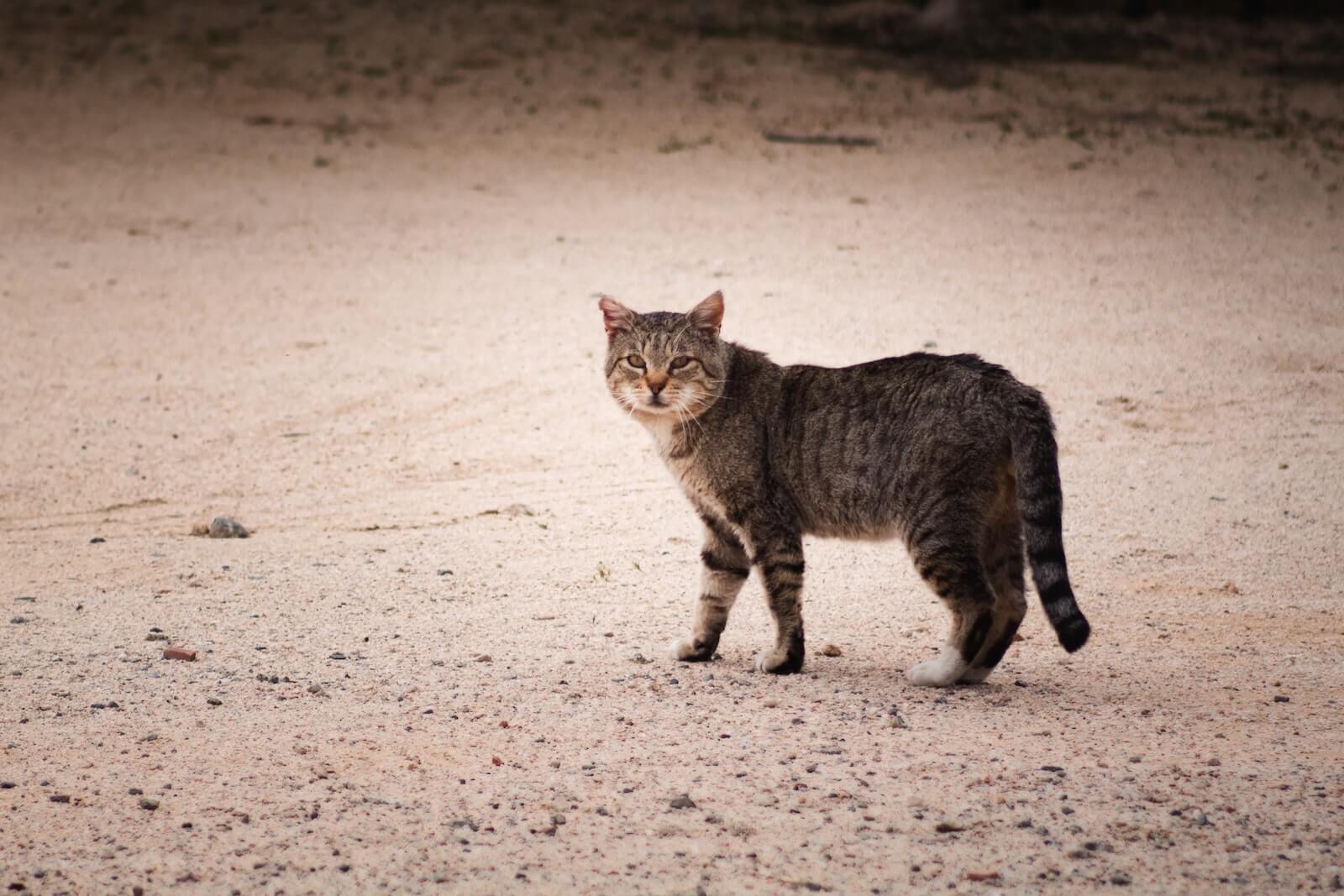Are you preparing for a short trip and unsure about leaving your cat alone for more than 24 hours? How long can cats go without food? After all, cats are very independent, and there are days when they don’t even look for us. Can you fill their food bowl and expect it to be enough? If these doubts drive you crazy, you’ve come to the right place for information. I’ll tell you everything you need to know about cat feeding schedules and what to do when an extraordinary situation arises.
How long can a cat go without eating?
Incredible as it may seem, cats, like humans, can survive for days without food. These strong felines can last up to two weeks without eating, although, after those 14 days, their health will not be in the best condition.

For a cat to be out of risk, it must not go more than 24 hours without food, domestic or feral, because their organisms are the same. When a cat goes two or three days without food, it enters a phase of malnutrition that can represent a significant risk to its life, especially if it is also deprived of water.
Although, in theory, a cat shouldn’t go more than a day without food, and in extraordinary situations, it could last up to 2 weeks without food, the reality is that many cats die on the fourth or fifth day without food, as it depends a lot on their health, age and the conditions in which they are living.
What happens when a cat stops eating?
When a cat goes more than 24 hours without eating, you will first notice that it is more lethargic than usual because its body is missing its fuel. The danger of a cat not eating for more than a day is that his body uses the protein from the meat he eats to generate energy, and when he doesn’t have it for more than 2 or 3 days, his body starts to convert the accumulated fat into energy.
While in humans, it doesn’t represent any problem, we even do fasting diets based on this principle; for cats, the story is entirely different, as their bodies should never have to use their fat reserves because that could alter the liver to a great extent, and can develop hepatic lipidosis.

Why do cats stop eating?
There are dozens of reasons that can lead a cat to stop drinking water or eating, so you must know its routine well to detect the problem quickly.
- Changing the food and the cat not liking it
- Stress and anxiety
- Upset stomach, the most common cause
- Digestive issues, such as an ulcer or inflammatory bowel disease
- Dental problems like inflamed gums or loose teeth (it’s important to clean your cat’s teeth)
- Parasites
- Underlying medical issues
Whenever your cat goes more than 24 hours without eating or drinking water, you should visit a vet, even if the cat has already accepted some food, because only an expert can rule out a disease or that the lack of food has caused any damage.
What to do if my cat doesn’t want to eat?
The first thing you should do is determine what is causing your cat to go on such a prolonged hunger strike. You may need to give him some quality time to lower his stress levels, or you may notice other signs of illness, such as vomiting or excessive salivation.
To motivate your cat to eat, you can do several things, including making sure his food bowl is clean and in a quiet place, and of course, preferably only give him fresh food as cats tend to be quite picky about this. If you have recently changed the type of food you were feeding him, you can mix his old food with the new kibble so that he gradually gets used to it, or you can also mix the new kibble with a bit of unsalted chicken broth, or with tuna water.
When kittens are sick, they often stop eating kibble because it hurts when they chew, or they don’t feel like eating hard, dry food, so you can resort to giving them white rice with Greek yogurt, cooked chicken, tuna, or even meat-flavored baby food, these soft foods work well to grow their appetite and help them hydrate.
Can I leave my cat alone for 24 hours?
If you must leave the house for a day, is it advisable to leave your cat alone? Cats generally don’t overeat, so if you leave a bowl overflowing with kibble, your cat will only eat what he needs and leave the rest for later – he may even like to save a few kibbles to use as a midnight snack.
If your cat is young and healthy, feeding should be no problem. Just leave a bowl of kibble and a large bowl of fresh water. You can also use automatic feeders and water fountains to ensure fresh food and water.

Whether or not your cat is comfortable being left alone for so long is another matter; that’s something only you and your cat know. You need to be very honest about this because if your cat gets stressed or depressed about being alone, he may not eat or drink water even if you have left him food well served. In this case, options might be having more than one cat to keep each other company, getting a sitter to stay home with your cat, or visiting to ensure everything is going well.
How long can cats go without food? The bottom line
Cats are amazing animals that, in adverse situations, could survive up to 14 days without food, although you should not stop feeding them every day since after 24 hours without food, their organism can start to collapse.
If your cat stops eating, there are many tricks you can try, such as giving him meat-flavored baby food or some cooked chicken. They love it. Whatever the reason for your cat to stop eating, always take it to the vet for a check-up.
